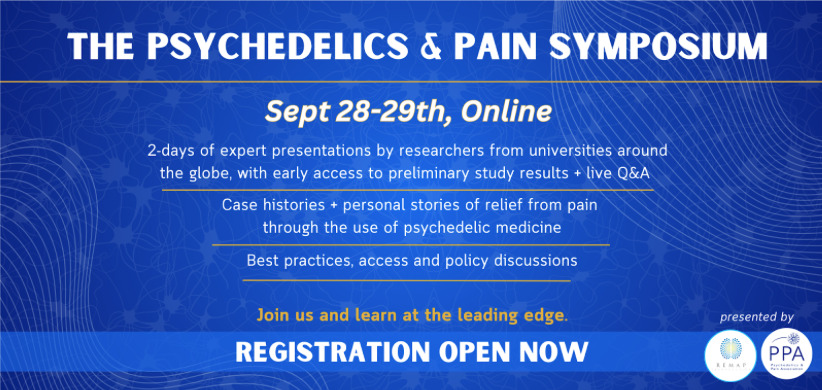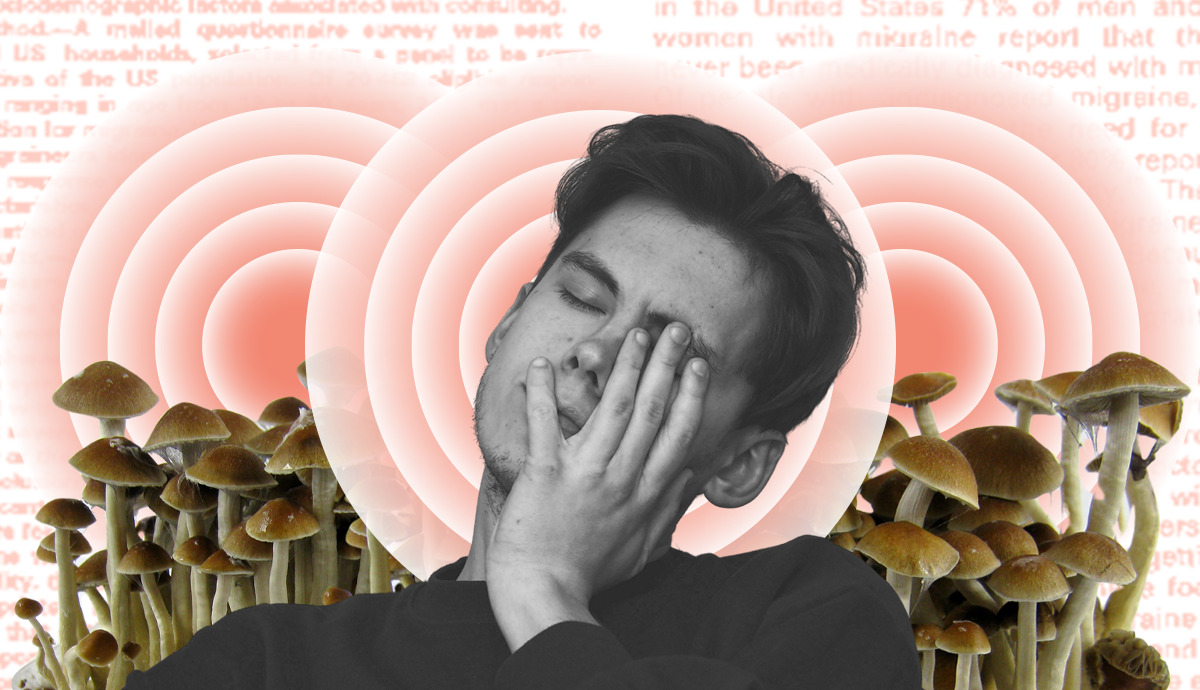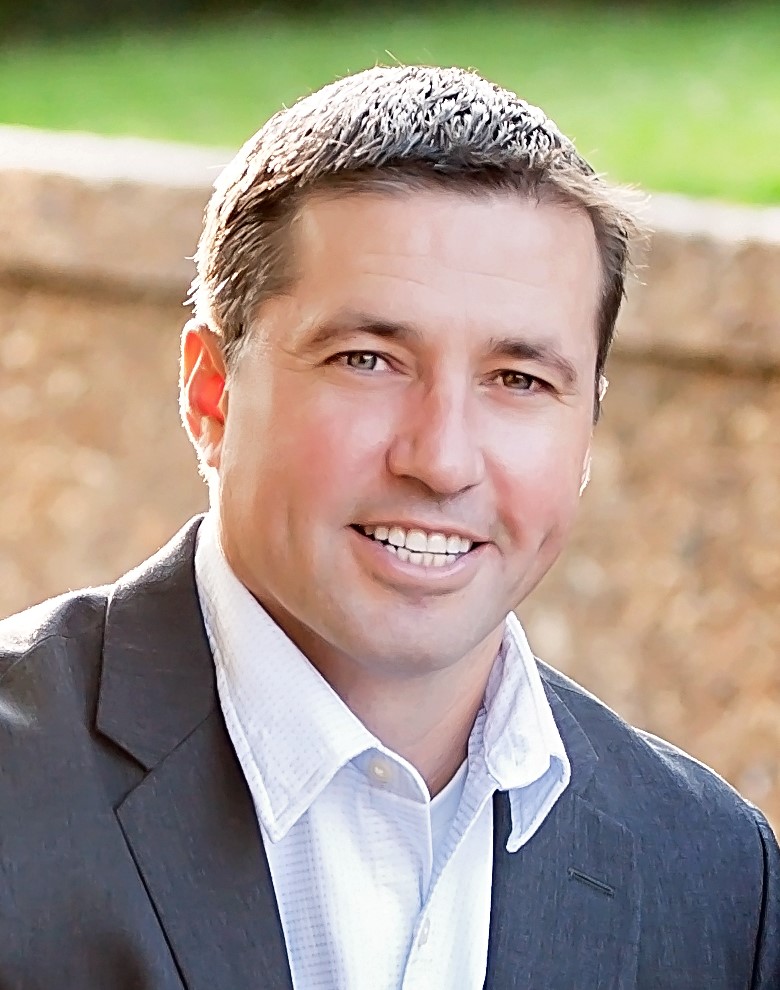Doctors across the country are beginning to look beyond their prescription pads to explore new treatments for chronic pain management: psychedelics.
As clinical research mounts, patient stories become more frequent, and a desperate call for new solutions to help people find relief for chronic pain becomes louder, substances like psilocybin and MDMA are entering medical education as promising new treatments.
Healthcare professionals are listening and learning how psychedelics could become part of their practices, offering new hope to patients for whom traditional methods – like opioids and nerve blocks – often fall short.
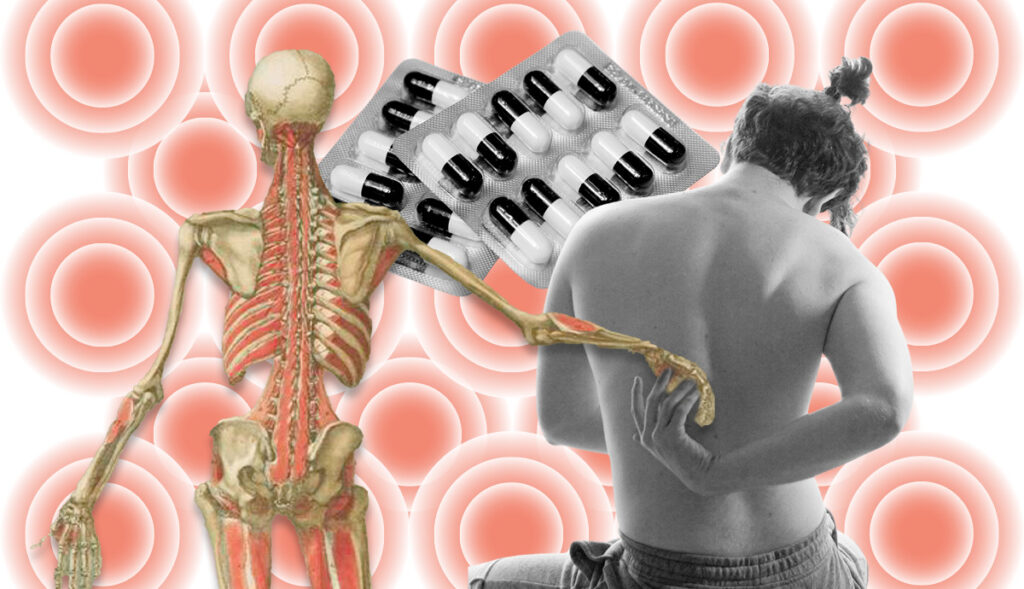
Psychedelics Take Center Stage at Medical Conferences
Recently at the annual PAINWeek conference, more than 1,400 pain management professionals gathered to learn about advances in the field. Psychedelics took center stage: the 2024 event marked the first time psychedelic medicines had a dedicated track on the agenda.
Retired FDNY firefighter Joe McKay and advocate Court Wing shared their experiences with using psychedelics to combat their chronic pain conditions.
Presentations in the psychedelic track were delivered by patients, healthcare professionals, including Dr. Eugene Vortsman, licensed clinical social worker Erica Siegal, and attorney Deborah Linden Saly, who are each engaged in research, advocacy, or clinical practice with substances like psilocybin, MDMA, LSD, and DMT.
A growing body of evidence shows people living with conditions including chronic low back pain, migraine, cluster headaches, fibromyalgia, traumatic brain injuries, and phantom limb pain often find that existing treatments are either ineffective or come with troubling or dangerous side effects.
The presence and fervor around psychedelics at the conference is the latest example of a growing focus by the medical community on psychedelics as a new and promising treatment for a wide range of chronic pain and physical conditions.

How Psychedelics Work to Combat Chronic Pain Conditions: Examining the Stories and Research
The complexity of pain is well-matched by the multiple ways that psychedelic substances impact human physiology and perception. Key pain prevention qualities of psychedelics include their ability to interfere with the ascending cascade of pain signals and their powerful anti-inflammatory effects.
Psychedelics can also create neuroplasticity that improves and alters perceptions of pain and corresponding reflexive responses. Many people also report that psychedelics change how they think about their pain and the deeply personal relationship they have with this unwanted constant companion.
New mechanisms of action for how psychedelics improve pain are continually being discovered and proposed. Broadly, it seems to be a complex confluence of biological, psychological and social factors that are all altered by psychedelics. It is premature to state that there is one key or overarching mechanism at work. The field continues to deepen knowledge about which substances and at what doses, are right for which conditions and individual patients.
Another exciting area of exploration is how psychedelics can be combined with a wide array of adjunctive therapies like neuromodulation, physical therapy, massage, mirror box exercises, posture therapy, and more to enhance the efficacy and enduring effect on chronic pain.
For Wing, the success he initially found in psychedelics came somewhat by serendipity after participating in a landmark John Hopkins psilocybin trial for depression.
“I had been evaluated for musculoskeletal pain and dysfunction that I had acquired through a host of injuries over the years of my performance career, and in fact, had just been in the doctor’s office a few months earlier trying to determine if I had arthritis or something worse,” Wing said. “But right there in the (psilocybin) session room, I started having a neurological revision, with my muscles and nerves in my right inner thigh firing in an effort to recalibrate the sensory and motor inputs and outputs in that part of my kinetic chain.”
Personal stories combined with evidence from clinical studies suggest the positive experiences of people in pain who try psychedelic treatments are not lucky aberrations.
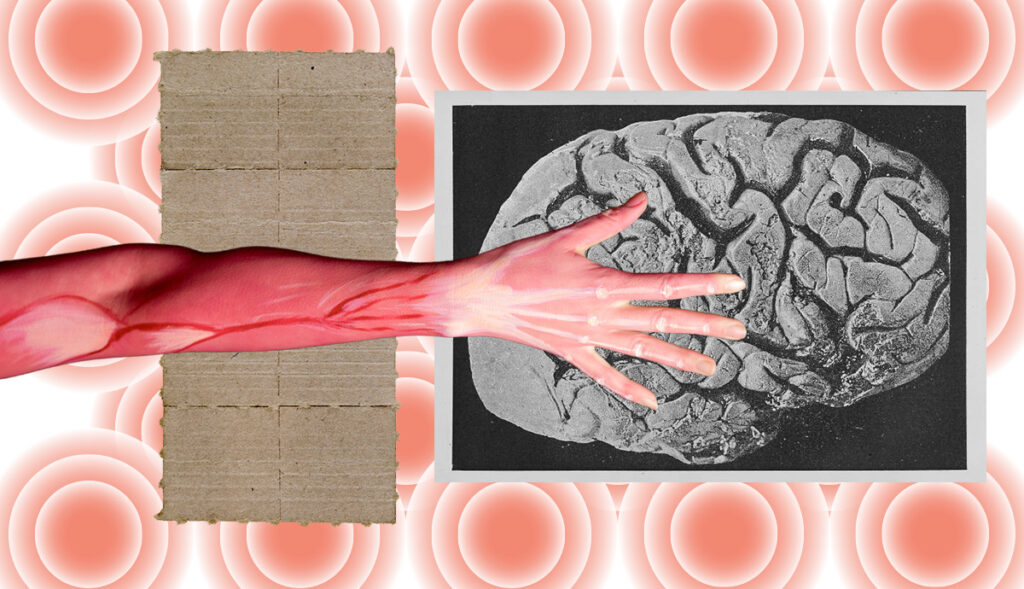
Navigating Legal Considerations of Psychedelics for Pain Management
Despite a rise in queries, concerns about discussing illegal substances keeps many in healthcare from speaking to their patients about psychedelics for chronic pain.
“Increasing numbers of patients ask me about the potential health benefits of psychedelic agents, both for my area of particular interest – cluster headache, as well as for other headache conditions and for general mental health,” Dr. Brian E. McGeeney, a neurologist and headache specialist in Boston said.
Attorney Deborah Linden Saly cautions healthcare providers: regardless of how state-level laws may change, psychedelics mostly remain illegal Schedule I substances at the federal level. But, she adds, medical professionals can employ strategies to mitigate liability when their clients ask them about psychedelics.
Broadly, healthcare providers can and should be able to answer questions about known efficacy (as documented in the scientific literature), psychedelic-prescription drug interactions, and be able to point to quality sources of information where the patients can learn more. Healthcare providers should be wary of recommending or encouraging psychedelic use until the legal status of these substances changes, but this does not negate providing clients, especially those who have exhausted all typical treatment methods, with resources and education – and encouraging them to seek more on their own.
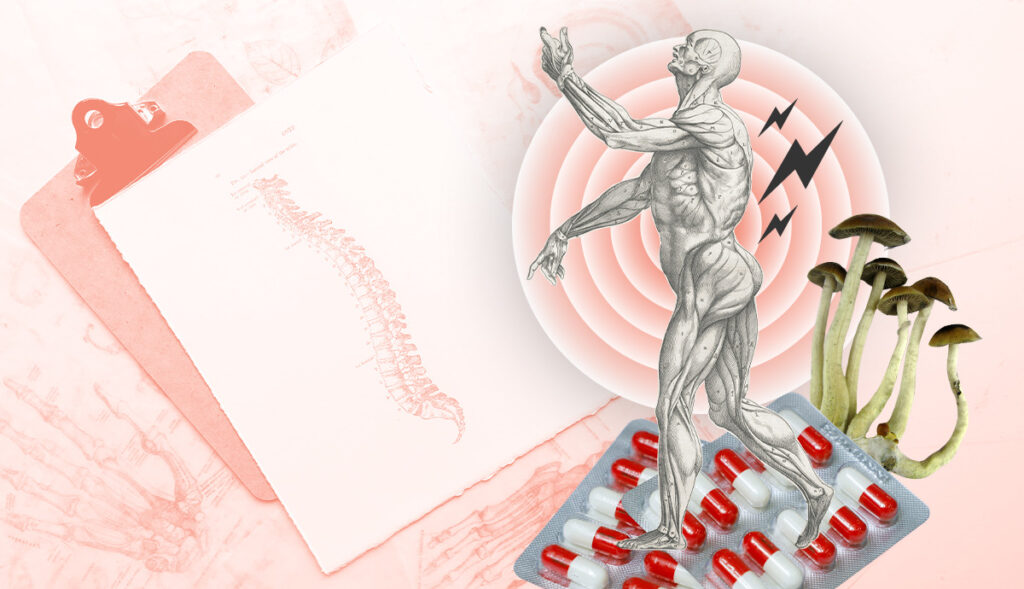
Psychedelics Entering the Professional Education Arena
In the past two years, many professional medical meetings have included discussion of psychedelics to treat pain. Earlier this year, Dr. Emmanuelle Schindler spoke at the American Headache Society’s (AHS) Annual Scientific Conference about her positive and significant research on psilocybin for cluster headache and migraine.
This fall, AHS will also host a pre-course titled Psychedelics and Headache Advanced Course at their Scottsdale Symposium. Presenters for this course include the founder and executive director of Clusterbusters, Bob Wold; sociologist and author of Psychedelic Outlaws: The Movement Revolutionizing Modern Medicine, Joanna Kempner, PhD; and Dr. Emmanuelle Schindler and other physicians. By the end of 2024, Schindler will have spoken on this topic at 16 medical and research events in the past two years.
The patient advocacy group Clusterbusters recently held its 19th annual U.S. conference, and due to growing interest from healthcare providers, they introduced a Continuing Medical Education (CME) course for the first time. This addition led to a fourfold increase in the number of attending medical professionals, who came to learn from the cluster headache patient community about effective treatments, including the potential use of psychedelics.
“What a privilege it was to get a better understanding of this community and the disease they tragically share. But it’s for that shared agony that they can make their lives better, along with the lives of countless others. Not to mention all the lives they’ve saved. Now they can count my enlightenment among their triumphs,” said Dr. Stephanie Nahas, a Philadelphia-based headache specialist.
The Future of Chronic Pain Care: With or Without Psychedelics
One in five Americans currently suffers with chronic pain. Pain management professionals know better than anyone else (except maybe individuals living with poorly treated pain) that the medicines and therapies currently available are insufficient to deal with the epidemic that is growing in our aging society. Psychedelics won’t soon be a first-line pain treatment or an effective solution for all the people living with pain, but patients are increasingly using and reporting remarkable effects with psychedelics. And their physicians have taken notice.
Within the coming years, pain management professionals will likely begin to be able to integrate psychedelic medicines into their clinical practices. The time to educate them is now.
